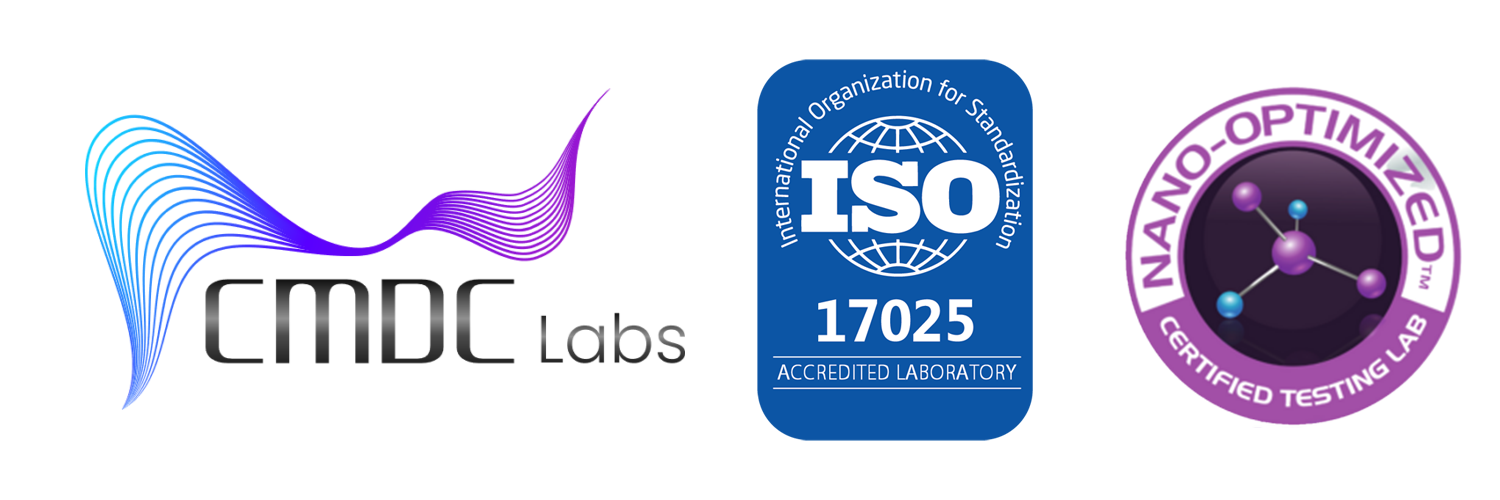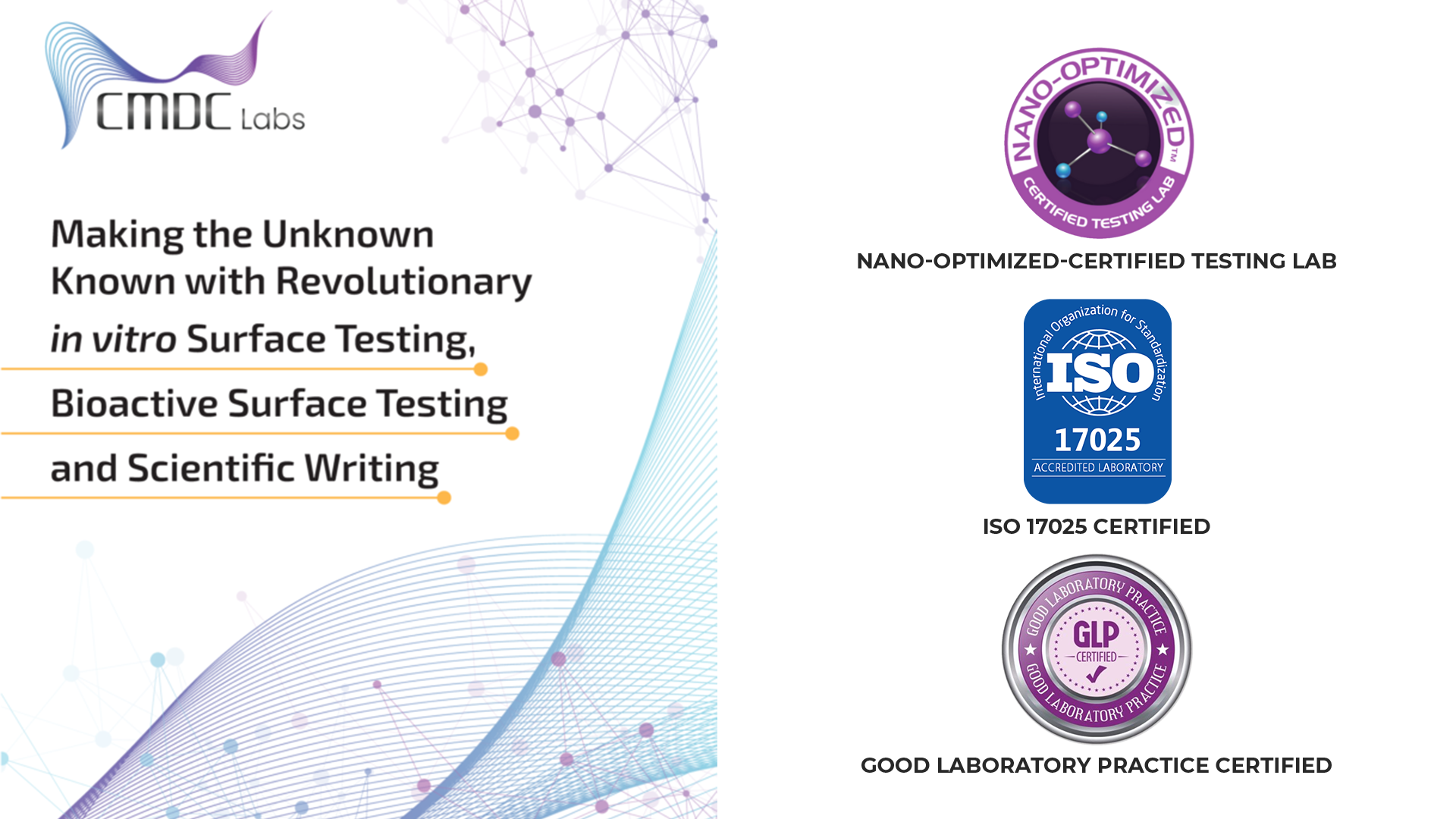Clean-label food brands — especially in the fast-growing plant-based and alternative protein sector — have transformed consumer expectations. Shoppers increasingly look for short ingredient lists, pronounceable components, and a commitment to natural, sustainable sourcing.
While these are valuable differentiators, there’s a common misconception:
“If it’s clean label, it’s inherently safe.”
The truth is more complex. Even with impeccable sourcing and natural ingredients, plant-based foods can still be vulnerable to safety risks that threaten brand integrity, consumer health, and regulatory compliance.
At CMDC Labs, we’ve partnered with some of the most innovative plant-based producers to ensure that their products meet not just clean-label promises but also the highest safety and quality benchmarks. Here’s why — and how — rigorous, accredited food safety testing is critical for clean-label innovators.
1. Clean Label Doesn’t Mean Contamination-Free
Natural ingredients are often minimally processed, which is part of their appeal — but this can also mean a higher potential for contamination.
Common risk points include:
- Microbial hazards such as Listeria monocytogenes, Salmonella, and E. coli.
- Allergen cross-contact, particularly in shared production facilities.
- Environmental contaminants like heavy metals or PFAS from water or packaging.
These risks are not a reflection of poor practices — they are inherent to complex food supply chains. Without accredited testing, they can go undetected until a recall or consumer complaint forces costly damage control.
2. Scaling Up Changes the Equation
Small-batch production environments are often easier to control. But when a plant-based brand scales up — increasing volume, adding new equipment, or moving into co-packing facilities — variables multiply:
- Different raw material sources with varying quality.
- Longer production runs that increase environmental exposure.
- New equipment introducing potential harborage points for microbes.
A process that worked flawlessly at pilot scale may need new safeguards at commercial scale. Testing programs must evolve alongside production.
3. Regulatory Requirements Are Expanding
The clean-label movement is driven by consumer trust, but regulatory oversight is tightening. The FDA, USDA, and international agencies are requiring increasingly transparent, documented proof of safety — including third-party testing.
Key compliance drivers:
- AOAC-approved methods for pathogen and allergen detection.
- FSMA (Food Safety Modernization Act) preventive control requirements.
- Export documentation for global distribution.
Working with an ISO 17025-accredited lab like CMDC ensures your testing results are recognized by regulators and trading partners worldwide.
4. Shelf-Life and Nutritional Validation Still Matter
Many clean-label brands focus heavily on removing preservatives — but without them, shelf-life stability can change dramatically.
Shelf-life testing verifies not just how long your product remains safe, but how long it maintains texture, flavor, and nutritional value.
Nutritional analysis ensures the numbers on your Nutrition Facts Panel are accurate, helping you avoid mislabeling risks and build consumer trust.
5. The Risk of Emerging Contaminants
Even for plant-based and organic products, new threats are emerging:
- PFAS in water sources or packaging.
- Heavy metals in plant-based protein powders.
- Mycotoxins in grains and legumes used for alternative proteins.
Detecting and addressing these contaminants early is essential to protecting brand equity and public health.
6. How CMDC Labs Supports Clean-Label and Plant-Based Brands
As a Colorado-based, ISO 17025-accredited lab, CMDC Labs specializes in AOAC-compliant food safety testing tailored to the needs of clean-label innovators.
Our capabilities include:
- Pathogen detection (Listeria, Salmonella, E. coli).
- Allergen verification for top 9 U.S. allergens and beyond.
- Nutritional analysis for NFP accuracy.
- Shelf-life studies under real and accelerated conditions.
- Process water testing to prevent microbial and chemical contamination.
- Trace contaminant screening for PFAS, heavy metals, and mycotoxins.
We partner with brands at every stage — from R&D trials to full-scale production — ensuring safety measures grow with your business.
Case in Point: Plant-Based Protein Scale-Up
One Colorado-based alternative protein company approached CMDC Labs during a major facility expansion. They had robust in-house QA but needed third-party validation to:
- Confirm allergen controls after adding new product lines.
- Establish shelf-life for products without synthetic preservatives.
- Test process water for contaminants introduced during equipment installation.
Our team developed a custom testing schedule that aligned with production milestones, enabling the company to launch on time with complete safety documentation for both domestic and export markets.
Conclusion: Safety as a Competitive Advantage
For clean-label brands, safety isn’t just a regulatory checkbox — it’s a key part of the brand promise. In the plant-based sector, where consumer loyalty is built on trust and transparency, accredited testing provides both protection and differentiation.
At CMDC Labs, we see safety as a competitive advantage for innovators. By combining rigorous science with responsive service, we help you bring safe, high-quality products to market faster — and keep them there.
Learn more about our AOAC-compliant food safety testing services:
https://cmdclabs.com/aoac-compliant-food-safety-testing/

